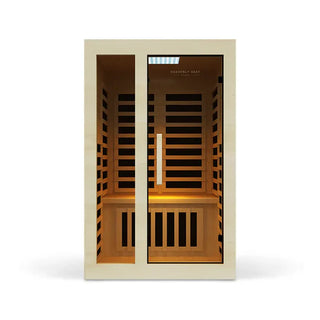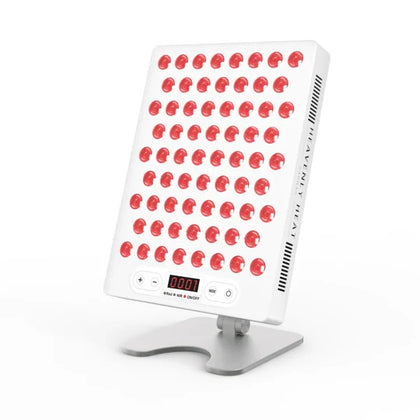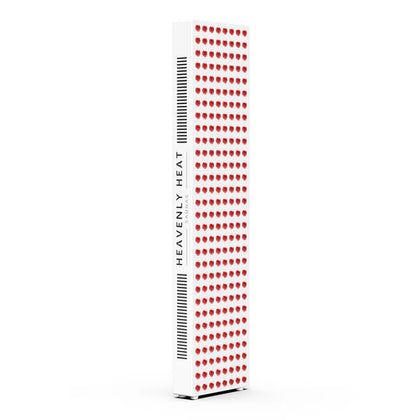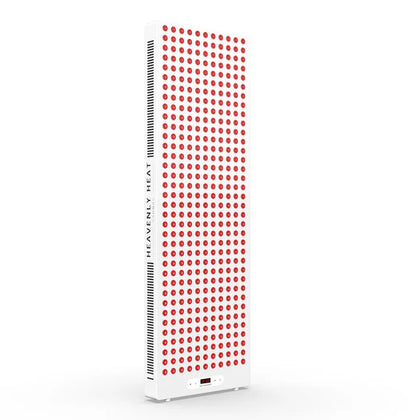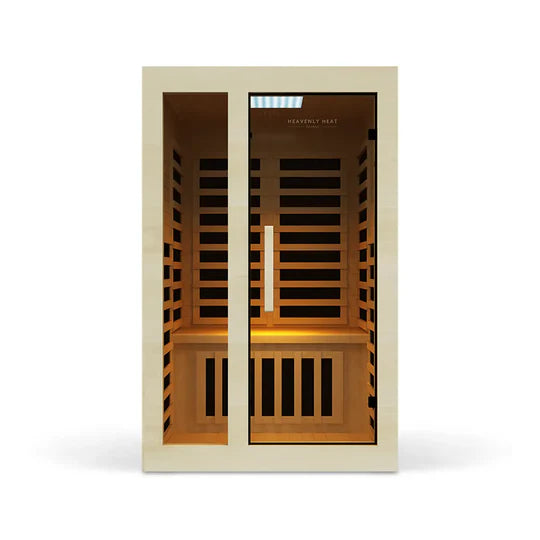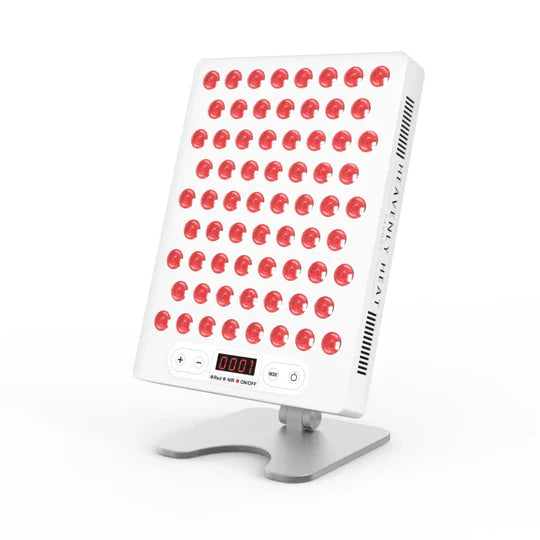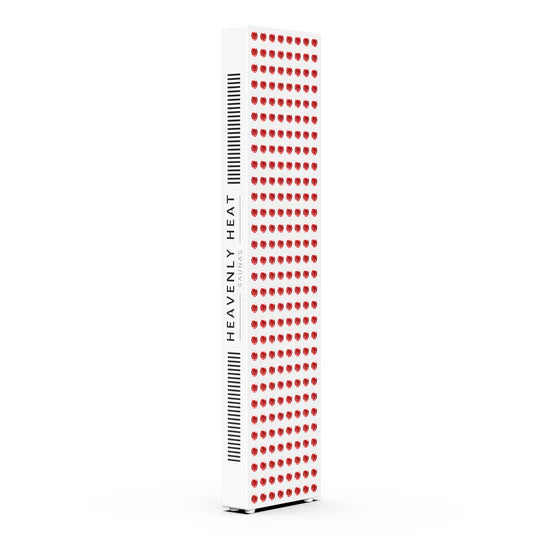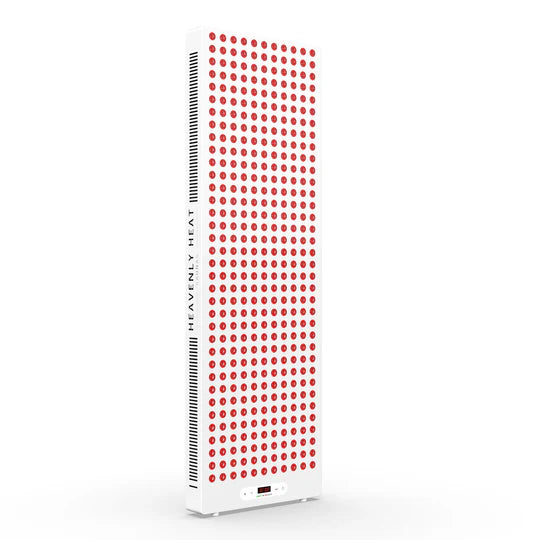Can You Sweat Out Alcohol in Sauna?

Many believe they can "sweat out" alcohol in a sauna to sober up faster—but is that true? The reality is, sweating doesn’t remove alcohol from your bloodstream, and using a sauna while intoxicated can be risky.
In this post, we’ll uncover the truth and explain what really helps your body process alcohol safely.
Key Takeaways
Sweating in a sauna does not speed up alcohol elimination; the liver is responsible for breaking it down.
Using a sauna after drinking increases dehydration, dizziness, and heart strain, making it risky.
Alcohol and sauna heat together can cause fainting, nausea, and even heat stroke.
Saunas do not cure hangovers and may actually make symptoms worse.
Safer alternatives for alcohol recovery include hydration, rest, hydrotherapy, and breathwork.
How the Body Processes Alcohol
- Alcohol gets into your blood just minutes after you drink it: After you take a drink, alcohol quickly enters your bloodstream through the stomach and small intestine. This fast entry is why you may start feeling the effects shortly after drinking.
- Your liver takes charge of breaking down the alcohol: Once in your system, the liver steps in to process the alcohol. It uses special enzymes like alcohol dehydrogenase to change it into acetaldehyde, a toxic substance, which is then turned into something harmless and removed from the body.
- Your liver can only handle a little alcohol at a time: On average, your liver processes about one standard drink every hour. This speed can be slower or faster depending on your age, body weight, hydration level, and genetics.
- Most alcohol leaves through pee and breath, not sweat: As your body clears the alcohol, most of it comes out in urine and breath. A small amount does escape through sweat, but it’s not much.
- Sweating doesn’t help you get sober any faster: Even if you sweat a lot, it won’t speed up how fast alcohol leaves your body. The liver still does nearly all the work, and that takes time no matter what.
Can You Eliminate Alcohol Through Sweat?
- Sweating doesn’t help your body get rid of alcohol: Many people think that sitting in a sauna or sweating a lot helps remove alcohol from the body. But that’s not how it works. Alcohol leaves your body through your liver, not through your sweat.
- No matter how much you sweat, your body still takes its time: Even if you're sweating buckets, it won't make your liver work faster. Your body breaks down alcohol at a steady pace, and sweating doesn’t speed that up.
- Using a sauna after drinking can make things worse: Trying to “sweat out” alcohol in a sauna can actually backfire. You risk getting more dehydrated and dizzy, which can make you feel worse and even put you in danger.
Risks of Using a Sauna After Drinking
Dehydration – Alcohol and heat both dry you out.
- Drinking alcohol already dries out your body: Alcohol takes water out of your system, making you dehydrated even before you step into a sauna.
- Sitting in a hot sauna makes you lose even more water: The heat from the sauna causes heavy sweating, which adds to the dehydration that alcohol has already started.
- When you’re too dehydrated, your body starts to struggle: You may feel very thirsty, dizzy, tired, or get a headache, these are clear signs your body doesn’t have enough water.
- Without enough water, it’s harder for your body to handle heat: Your body can’t cool itself properly when you’re low on fluids, which raises the risk of overheating in the sauna.
- Drinking water before and after can help avoid these problems: If you’ve had alcohol, make sure to drink enough water before and after using a sauna to protect your health.
Dizziness & Fainting – Sauna heat can make you lightheaded.
Saunas naturally lower blood pressure by dilating blood vessels, and alcohol has the same effect.
This combination can lead to dizziness, lightheadedness, and an increased risk of fainting.
A sudden drop in blood pressure can leave you feeling weak and disoriented, making it harder to move safely.
If you faint in a sauna, the extreme heat poses an additional danger, potentially leading to overheating or injury.
Rapid Heart Rate – Puts extra stress on your heart.
- Drinking and sauna make your heart beat faster than normal: When you drink alcohol and then use a sauna, your blood pressure drops. To make up for it, your heart starts beating faster, which puts extra load on your heart.
- Fast heartbeat from this combo can stress your heart too much: This extra-fast heartbeat isn’t just uncomfortable, it puts your heart under pressure, which can lead to chest pain, palpitations, or even heart problems if pushed too far.
- Alcohol and sauna together can drop your blood pressure a lot: Studies found that using a sauna after drinking causes a big drop in blood pressure. This sudden fall, from 136 to 113 mmHg, can make you feel dizzy or even cause you to faint.
- If you already have heart problems, this is extra risky: People with heart conditions should be especially careful. Your body may not be able to handle the changes in heart rate and blood pressure caused by alcohol and heat together.
- Saunas are healthy, but only when alcohol isn’t involved: Using a sauna on its own can actually be good for your heart. But once you add alcohol, it becomes dangerous. The problem isn’t the sauna, it’s the alcohol with it.
- Heat and alcohol together confuse your heart's control system: Even if you’re young and healthy, this mix can mess with how your body controls blood pressure and heart rhythm. That makes it more likely for something to go wrong.
Nausea & Vomiting – Heat can worsen stomach discomfort.
- The heat makes your sick stomach feel worse: Alcohol can already upset your stomach, and stepping into a hot sauna can push that nausea over the edge.
- Sweating when you're already dehydrated makes things worse: If you've been drinking, you're likely already low on fluids. The heavy sweating from sauna heat can leave you feeling dizzy, weak, and even more nauseous.
- Throwing up in a sauna is risky and dangerous: Vomiting in a hot, enclosed space can lead to choking and further dehydration, putting your health in real danger.
- Resting is safer than sweating it out: If you're feeling hungover or nauseous, the smartest thing you can do is rest and rehydrate, not sit in a sauna.
Heat Stroke – Increases the risk of overheating.
- Mixing alcohol and sauna heat makes your body overheat faster: Drinking before using a sauna puts your body at serious risk because alcohol and high heat together make it much harder to stay cool.
- Alcohol stops your body from cooling down properly: When you drink, your body loses its ability to control temperature , so in a hot sauna, you can't cool off like you normally would.
- Your body can get too hot too quickly and shut down: If your body overheats and can’t cool down, you might feel dizzy, sick, or even faint. If ignored, this can quickly become a life-threatening emergency.
- Even without alcohol, extreme heat puts your body under stress: A study showed that just sitting in a 120°C sauna caused people to feel tired, confused, and stressed, with a faster heart rate and lower blood pressure.
- Feeling sick or confused are signs you’re about to faint: In that same study, people who started vomiting or felt confused were more likely to faint, clear warnings that your body is overheating dangerously.
- Drinking alcohol makes all of these risks even worse: Since alcohol already messes with your body’s balance, it adds to the danger. The combination with sauna heat is not just risky, it’s deadly.
- Best way to avoid heat stroke is to skip the sauna if you’ve been drinking: To stay safe, don’t use a sauna after drinking. It’s a simple decision that can prevent serious heat-related problems.
Loss of Balance – Harder to stay steady in high heat.
Both alcohol and extreme heat impair coordination, making it more difficult to stay steady on your feet.
This increases the risk of slipping, falling, or getting injured inside a sauna. Since saunas often have wooden benches or tiled floors, a loss of balance in such an environment can lead to serious accidents.
If you're feeling unsteady after drinking, stepping into a sauna only raises the chances of a dangerous misstep.
Worse Hangovers – Sauna use may intensify symptoms.
Alcohol can cause nausea, and heat exposure makes it worse. If you already feel queasy, stepping into a hot sauna may intensify your discomfort.
In extreme cases, vomiting in a sauna can pose a choking hazard, particularly if dehydration and dizziness are already present.
Rather than using heat to "sweat out" alcohol, focus on hydration and rest to settle your stomach and recover safely.
Poor Judgment – Alcohol and heat dull decision-making.
Alcohol impairs decision-making, which can make sauna use even riskier. You might not recognize warning signs like dizziness, dehydration, or overheating until it's too late.
Staying in a sauna for too long or failing to drink enough water can increase the likelihood of dangerous outcomes.
When your awareness is compromised, you may not realize you're pushing your body past its limits until you experience severe symptoms.
Passing Out Risk – Higher chance of losing consciousness.
- Drinking before sauna makes passing out more likely: Fainting in a sauna is already a risk because of the heat and dehydration. When you drink alcohol, your body becomes even more vulnerable to blacking out.
- Blacking out in a sauna can cause serious harm: If you pass out in a sauna, you might hit your head, choke, or overheat dangerously. The environment makes any loss of consciousness much more dangerous than usual.
- Alcohol makes your blood pressure drop suddenly: Studies show alcohol affects how your body controls blood pressure. Inside a hot sauna, this can lead to a sudden drop, increasing the chance of fainting.
- Your heart is under more pressure when you mix alcohol and heat: Drinking especially during a hangover, can cause irregular heartbeats. Sauna heat adds more stress to the heart, making this problem worse.
- Fainting and heart problems become more dangerous together: The mix of alcohol and heat raises the risk of both fainting and heart rhythm issues. These two problems can feed into each other and become life-threatening.
- Feeling dizzy or weak is a warning to get out immediately: If you start feeling lightheaded, disoriented, or unwell in the sauna, leave right away. Staying inside could lead to fainting and serious consequences.
- Passing out from drinking is bad, doing it in a sauna is much worse: Losing consciousness from alcohol is risky on its own. But if it happens in a sauna, the danger is far more extreme due to the intense heat.
Strain on Organs – Extra work for your liver and kidneys.
- Your organs are already tired from handling alcohol: Saunas add heat stress to your body, forcing your heart, kidneys, and liver, already working hard to deal with alcohol , to do even more. This can be risky, especially if you already have health issues.
- Alcohol makes it harder for your kidneys to work properly: Drinking affects how your kidneys function and can cause long-term damage, making it difficult for them to balance fluids and filter out waste.
- Too much alcohol throws off your body’s fluid balance: Alcohol can lower important electrolytes in your blood and mess with your body’s natural acid balance, which puts extra pressure on your kidneys.
- Alcohol confuses the hormones that control your kidneys: Drinking interferes with hormonal signals that help your kidneys do their job. When combined with sauna heat, this adds more strain on these vital organs.
- Liver damage from drinking makes kidney problems worse: Long-term drinking can damage your liver, and once the liver is weak, it makes your kidneys work even harder, sometimes leading to serious issues like kidney failure.
- Sweating in a sauna won’t remove alcohol from your body: Your body clears alcohol through your liver and kidneys, not through sweat. Using a sauna while drinking only increases dehydration and stress on these organs. Drinking water and resting is a much safer way to recover.
Can a Sauna Prevent a Hangover?
Saunas do not help cure hangovers and often make symptoms worse. While the idea of "sweating out" toxins is popular, your liver, not sweat, is responsible for breaking down alcohol.
Since dehydration is a key cause of hangovers, excessive sweating in a sauna can prolong symptoms rather than relieve them.
To recover effectively, drink plenty of water, eat nourishing foods, and get enough rest.
What Experts Say About Saunas and Alcohol
- Mixing alcohol with sauna heat puts your health at serious risk: Doctors warn that combining alcohol with sauna use can dangerously increase dehydration, put extra strain on your heart, and lead to heat-related illnesses.
- Your body needs to be alcohol-free before using a sauna safely: Experts agree: the safest choice is to wait until all alcohol has left your system before stepping into a sauna.
- Using a sauna after drinking won’t help you recover, it can make things worse: Trying to “sweat out” alcohol in the sauna is a harmful myth. Instead, support your body with water, good food, and rest.
- Saunas can still be great for your health, if used the right way: While mixing alcohol and heat is risky, sauna sessions can be very healthy when done responsibly and at the right time.
- The heat from saunas helps your body become stronger over time: The stress your body feels during a sauna session isn’t harmful, it helps your cells adapt and handle challenges better.
- Regular sauna use may protect your heart and help you live longer: This natural response to heat can improve heart function and might even add years to your life if done regularly and safely.
Best Alternatives to a Sauna for Alcohol Recovery
Epsom Salt Baths – Soak away toxins and tension
- Soaking in Epsom salt helps your body relax after drinking: Epsom salt baths are a popular way to unwind when recovering from alcohol. Warm water and salts help the body calm down and ease tension after a night of drinking.
- The salts reduce muscle pain and make you feel better: Many people feel sore or tight after drinking. The minerals in Epsom salts help relax muscles and reduce that achy, uncomfortable feeling.
- Magnesium in the salts helps calm your mind: Epsom salts are full of magnesium, which can make you feel more relaxed and less stressed, something your body really needs after alcohol.
- A warm bath before bed can help you sleep better: Drinking can mess with your sleep. Taking an Epsom salt bath at night can help you fall asleep more easily and improve your rest.
- It’s usually safe, but listen to your body: Epsom salt baths are safe for most people, but if you feel anything unusual, it’s smart to stop and talk to a doctor.
Hydrotherapy – Water-based recovery for circulation
- Water helps your blood move better after drinking: Hydrotherapy is a great way to boost circulation and help your body recover after drinking. By using both hot and cold water, you can stimulate blood flow and reduce inflammation.
- Cold water wakes up your system and reduces swelling: Cold water therapy, for instance, can tighten blood vessels and improve circulation. It helps the body feel more alert and less swollen after alcohol.
- Hot water calms your body and improves blood flow: Hot water relaxes the muscles and increases blood flow, making it easier for your body to rest and recover from alcohol.
- Switching between hot and cold water helps flush out toxins: Contrast hydrotherapy, which alternates between hot and cold, is particularly effective in helping the body detoxify. It keeps your blood moving and supports faster recovery.
- Water therapy supports how your body naturally heals itself: It’s not only great for general circulation but also supports the body's natural recovery processes, making it a powerful tool for alcohol recovery.
Breathwork & Meditation – Calm your mind and body
- Breathing slowly helps you feel more relaxed: Breathwork can quickly calm both your body and mind. During alcohol withdrawal, stress can feel overwhelming, but taking slow, deep breaths helps release that tension and create a sense of calm.
- Focusing on your breath calms your nerves: When you pay attention to each breath, your nervous system starts to settle. This simple focus helps reduce anxiety and brings a quiet stillness that supports recovery.
- Meditation helps you stay calm and think clearly: Practicing meditation can improve emotional control and mental clarity. This makes it easier to handle tough emotions that often come up during recovery.
- Regular meditation makes your mind stronger: Over time, meditation builds inner strength. You become more grounded, making it easier to face daily challenges without feeling overwhelmed.
- Mindful breathing is proven to reduce stress: A study from Universitas Padjadjaran in Indonesia showed that mindfulness breathing really works, it reduced stress and anxiety in students. That’s strong evidence it can help during recovery too.
- Breathwork and meditation make hard days easier: These simple tools support emotional balance and help you stay steady through the highs and lows of recovery. With regular practice, you’ll feel more in control and at peace.
Massage Therapy – Improve circulation and ease stress
- Massage relaxes tight muscles and eases pain: During alcohol recovery, massage helps loosen stiff muscles and relieves common discomforts like tension and headaches that often come with withdrawal.
- It improves blood flow to help the body clean itself: The pressure used in massage boosts circulation, which supports your body’s natural detox system and helps remove leftover alcohol-related toxins more efficiently.
- Massage makes you feel calm and less anxious: Stress and anxiety can feel overwhelming during recovery. A massage helps calm your mind and body, making it easier to handle emotional ups and downs.
- Better blood flow supports your liver’s healing: Massage can help get more blood flowing through the liver, which may support liver repair and overall health during the recovery process.
- It gives your whole body a chance to rest and recover: Massage therapy brings deep relaxation, helping you feel better both physically and mentally. It’s a simple, natural way to feel more at ease as your body heals.
Acupuncture – Restore balance and detox naturally
- Acupuncture helps your liver work better and cuts down alcohol cravings: When you get acupuncture during recovery, it works on points in your body that help your liver do its job and can reduce how much you crave alcohol.
- Acupuncture brings your body back into balance during recovery: By focusing on special points, acupuncture helps your body feel more balanced, which is important when you're healing from alcohol use.
- Acupuncture makes it easier to sleep when alcohol messes that up: Sleep problems are common when you stop drinking. Acupuncture can calm your body and help you sleep better during recovery.
- Acupuncture calms your mind and helps you feel more stable emotionally: It doesn’t just help the body, acupuncture can ease anxiety and emotional ups and downs, making recovery feel more manageable.
- Acupuncture supports your full recovery and keeps you on track long-term: As part of a full recovery plan, acupuncture adds extra support, helping your body and mind stay strong and sober over time.




